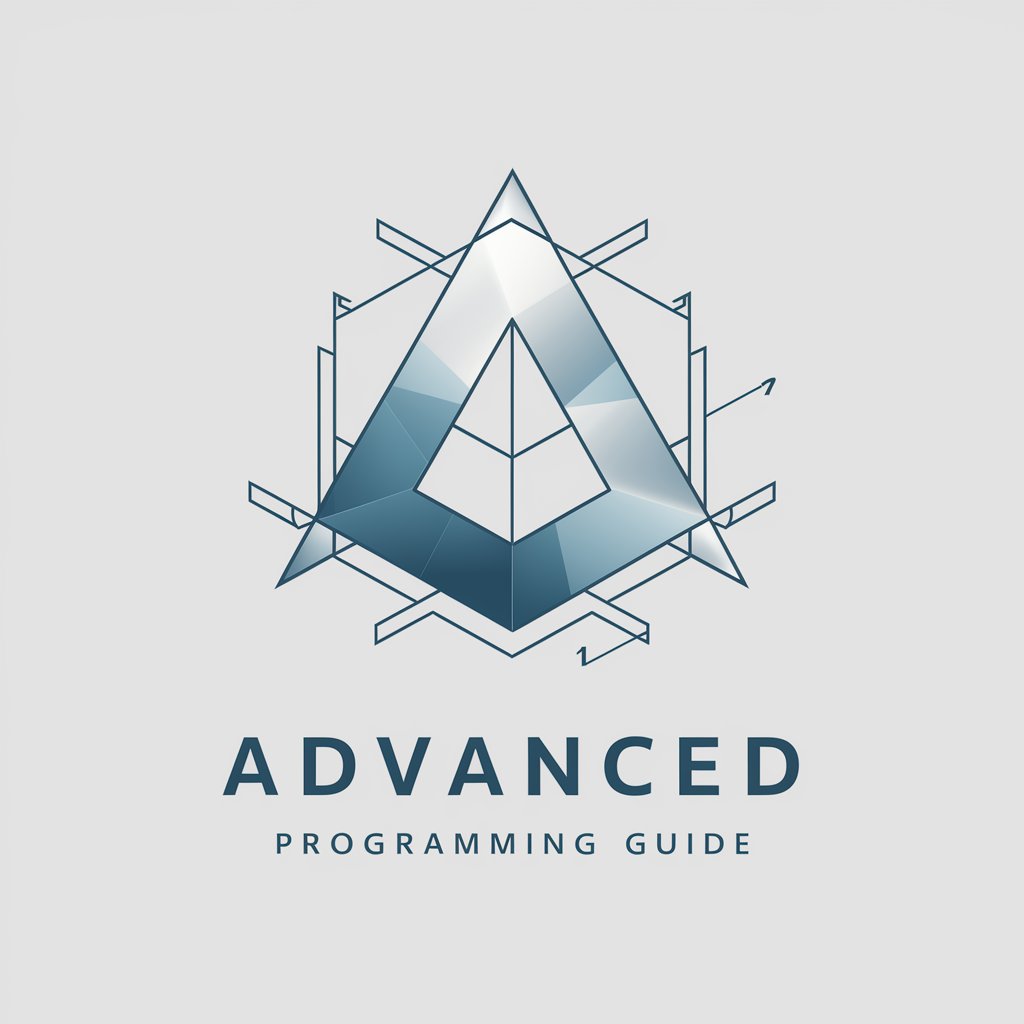🖥️ Ada Generic Programming Guide - Ada Generics Learning Tool

Welcome to the Ada Generic Programming Guide!
Master Ada generics with AI-powered guidance
Explore the fundamentals of Ada generic programming by understanding the purpose and structure of generic units.
Learn how to define generic packages and subprograms in Ada, with hands-on examples and syntax details.
Discover the process of instantiating generic units in Ada and see practical use cases like data structures.
Delve into optimizing performance and testing strategies for Ada generic components, ensuring robustness and efficiency.
Get Embed Code
Introduction to Ada Generic Programming Guide
The Ada Generic Programming Guide is designed to empower developers with the knowledge and tools necessary for leveraging Ada's generic programming capabilities. Generic programming in Ada enables the creation of software components that are reusable, modular, and maintainable. By abstracting over types or operations, generic units such as packages or subprograms can be defined once and then instantiated with specific types or operations, reducing code duplication and enhancing reliability. For example, a generic stack package can be defined to handle elements of any type, and then instantiated for specific types like integers or strings, illustrating Ada's power in creating versatile and robust software components. Powered by ChatGPT-4o。

Main Functions of Ada Generic Programming Guide
Defining Generic Units
Example
Creating a generic stack package that can operate on any data type.
Scenario
A developer needs a stack data structure for different types of elements in various parts of an application. By defining a generic stack, the developer can create specific stack instances for integers, strings, or any custom type, ensuring type safety and reducing code redundancy.
Instantiating Generic Units
Example
Instantiating the generic stack package for a specific data type like Integer.
Scenario
When a part of the application requires a stack for integer values, the developer instantiates the generic stack package for Integer, creating a stack component tailored for integer operations without writing additional stack logic.
Interface Design for Generic Components
Example
Designing user-friendly and efficient interfaces for generic stack operations such as push and pop.
Scenario
To ensure the generic stack is easy to use and performs well, interfaces for operations like push and pop are carefully designed. This allows developers to interact with the stack in an intuitive manner while maintaining the flexibility and efficiency of the generic component.
Performance Optimization
Example
Optimizing a generic sorting algorithm for different data types and sizes.
Scenario
Developers can use the generic programming guide to optimize algorithms for performance, ensuring they run efficiently across various data types and volumes. This is crucial for applications that process large datasets and require high-performance sorting capabilities.
Ideal Users of Ada Generic Programming Guide Services
Software Developers
Developers working in high-integrity and safety-critical fields such as aerospace, defense, and transportation will find the Ada Generic Programming Guide invaluable. The guide's focus on robustness, type safety, and reusability aligns with the stringent requirements of these sectors.
Educators and Students
Educators teaching programming concepts and students learning about software engineering principles can benefit from the guide. It provides a structured approach to understanding generic programming, making it an excellent educational resource.
Software Architects
Architects designing large-scale, maintainable systems will appreciate the guide's emphasis on modularity and reuse. The Ada Generic Programming Guide offers strategies for designing flexible and maintainable software architectures using generic programming.

How to Use the Ada Generic Programming Guide
1
Begin by accessing a free trial at yeschat.ai, no login or subscription required.
2
Familiarize yourself with Ada's syntax and generic programming concepts to fully benefit from the guide.
3
Explore the guide's sections, starting with basics of generic programming in Ada, then proceed to advanced topics as your understanding deepens.
4
Apply the concepts learned by practicing with the sample code snippets and exercises provided within the guide.
5
Utilize the discussion forums or support channels offered on the platform to ask questions or share insights with other learners.
Try other advanced and practical GPTs
💻 C# Memory Optimization Expert
AI-driven C# memory optimization insights.

2 Acre Studios GPT Directory
Your AI-Powered GPT Matchmaker

Market Mentor
Empowering Your Investment Journey with AI

Smart Financial Analyst
AI-Powered Financial Guidance

MTG Master
Elevate Your MTG Game with AI

Finance Educator
Empowering investment decisions with AI

C++ in Computational Science
Empowering scientific discoveries with AI-enhanced C++

Python Coding for Kids
Empowering young minds to code with AI.

CyberLegionGPT
Empowering cybersecurity with AI.

Real Estate Financial Consultant
Optimize your real estate investments with AI

C++ for Server Architectures
Optimize server performance with AI-powered C++ insights.

🎯 Master Pascal's Set Data Types
Harness the power of unique element management

Frequently Asked Questions about the Ada Generic Programming Guide
What is Ada Generic Programming?
Ada Generic Programming is a method in the Ada programming language that allows for the creation of flexible and reusable software components. It uses generic units like packages and subprograms that can be instantiated with specific types or values to create tailored functionalities.
How do I define a generic unit in Ada?
To define a generic unit, start with the 'generic' keyword followed by the formal generic parameters. Then, define the unit (package or subprogram) as usual. The generic parameters allow the unit to operate on a variety of data types or values without modification to the unit's code.
Can you provide an example of instantiating a generic unit?
Sure, to instantiate a generic stack package for integers, you might have a generic package defined as 'Generic_Stack'. To create an instance for integers, you would write something like 'package Int_Stack is new Generic_Stack(Integer);', where 'Integer' is the actual parameter replacing the generic formal parameter.
What are the benefits of using generic programming in Ada?
Generic programming in Ada enhances code reusability, reduces errors by enforcing type safety at compile time, and allows for the creation of more flexible and maintainable software components. It supports software engineering principles like modularity and abstraction.
Are there any performance considerations when using generics?
While generics can improve code reusability and safety, they may introduce complexity and potentially affect performance. However, Ada's design and compilers are optimized to minimize such overheads, making the impact on performance negligible in most cases. Always test and profile your generic components under realistic conditions to ensure performance meets your requirements.
